No Syllabus, Stigmas: UP Village Has India’s First All-Girls Agricultural School
The school was founded in 2016, by Ashita and Anish Nath, a couple from Lucknow, whose journey towards this phenomenal decision is even more unusual.
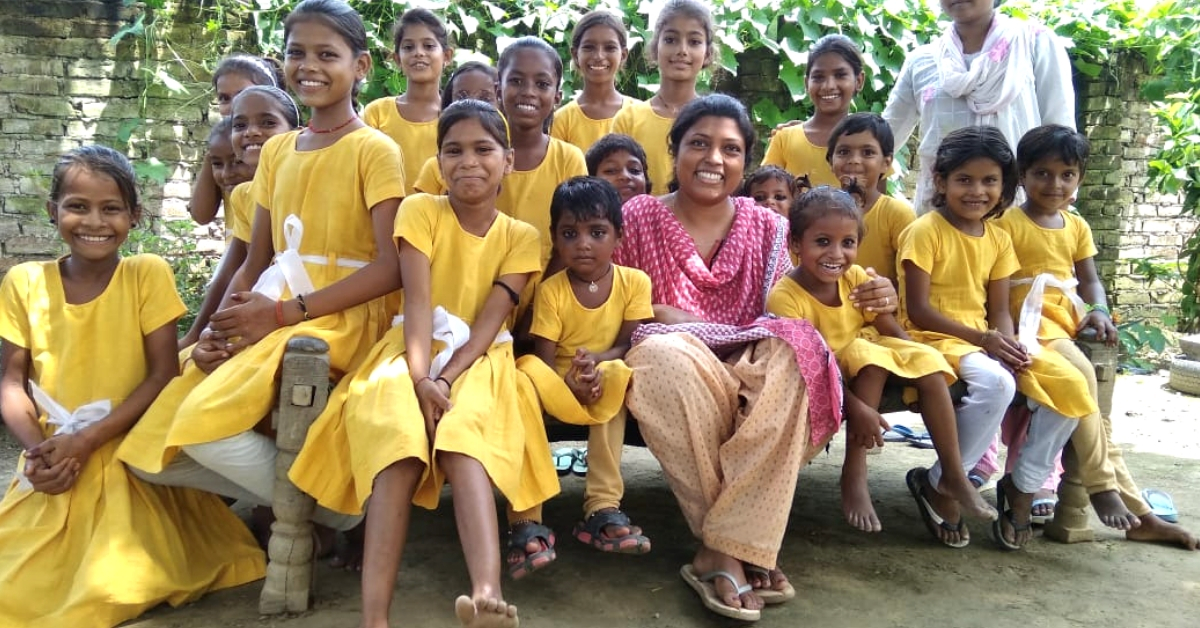
Did you know that The Good Harvest School, located in the village of Paschim Gaon in the Unnao district of Uttar Pradesh, is India’s first agriculture-based primary school for girls?
There are no concrete buildings and no class-like system here. On the contrary, the girls learn about good farming practices through hands-on experience in the space of 50,000 sq ft. The school also houses a nursery, a seed bank and cattle.
Fascinating isn’t it?
The school was founded in 2016, by Ashita and Anish Nath, a couple from Lucknow, and their journey towards this phenomenal decision is even more unusual.
“We were working in Delhi for about 6-7 years before Anish decided to quit his corporate job for something more meaningful. He was keen on farming and wanted to grow food like scores of farmers across the country. So in 2013, we purchased a plot of land in the Unnao district and got to work. But what awaited us was a quite a different picture,” says Ashita to The Better India.
While the region is entirely dependent on agriculture, the farmers here rarely move beyond one type of crop and leave the land fallow for the rest of the year.
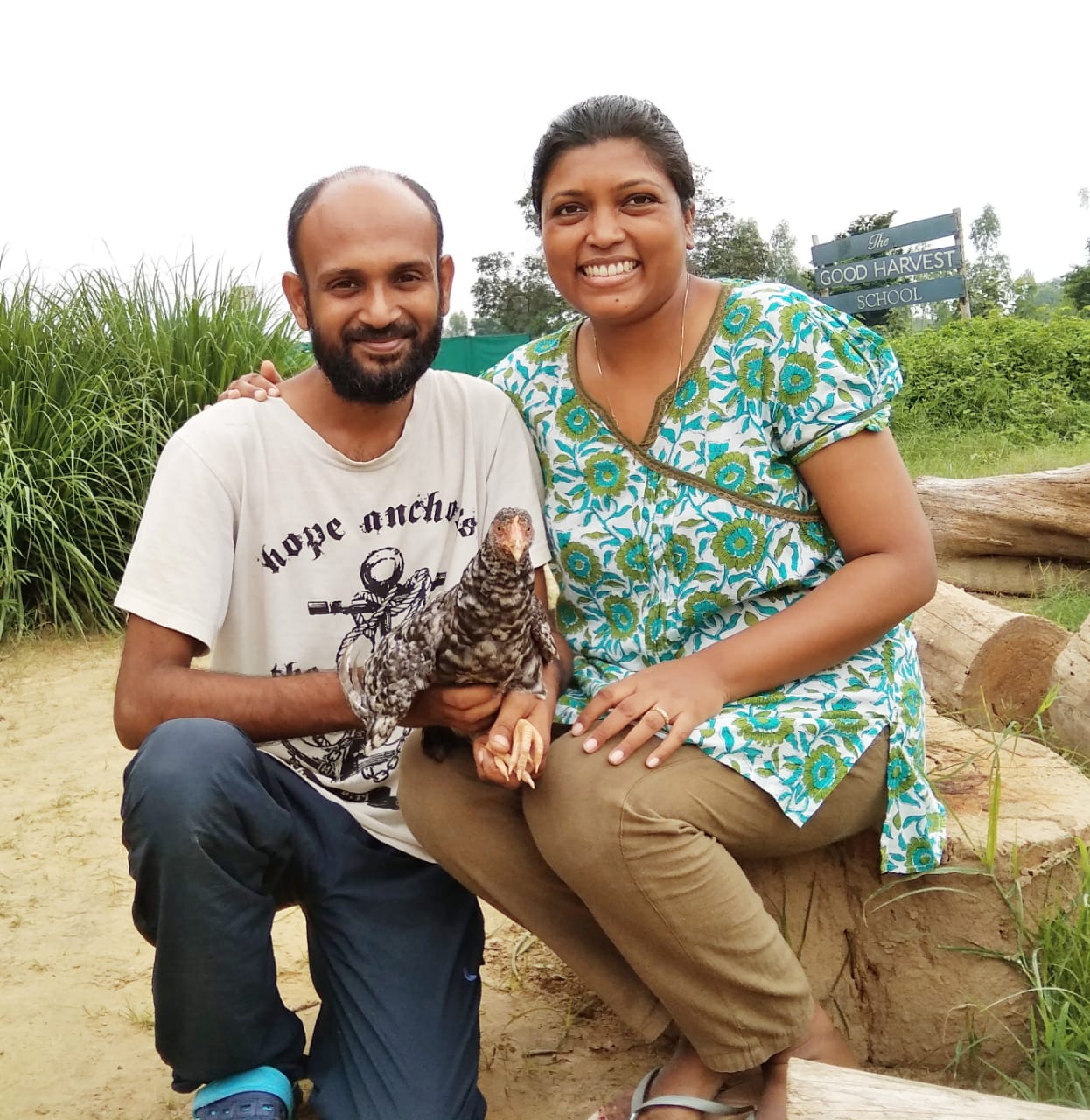
The couple also found out that due to the lack of returns, it was common for the farmers to sell their land or parts of it when they needed money. Sometimes, they would even sell everything and move away in search of better job opportunities.
“Seeing how agriculture was suffering in the village, Anish tried to reach out to the farmers and even brought in experts from Krishi Vigyan Kendra (KVK) to help them with a more scientific and systemised approach to farming. About three years went into the process, but nothing changed. All this while, I was teaching in a school in Lucknow,” remembers Ashita.
The depressing state of the education system in the region also caught the couple’s attention.
“You would meet kids in class 9 who couldn’t even read a sentence properly. It was particularly distressing for me since I’d been a teacher for over a decade. It was then that we decided to do something to change this scenario. A school for the young was what we had in mind, but we wanted to take into account various factors that would equip the kids for life than just blackboard learning,” Ashita explains.
Because most families were engaged in farming for generations, the duo decided that they would include it as a subject in their school, when they opened it. But exactly whom would this school cater to?
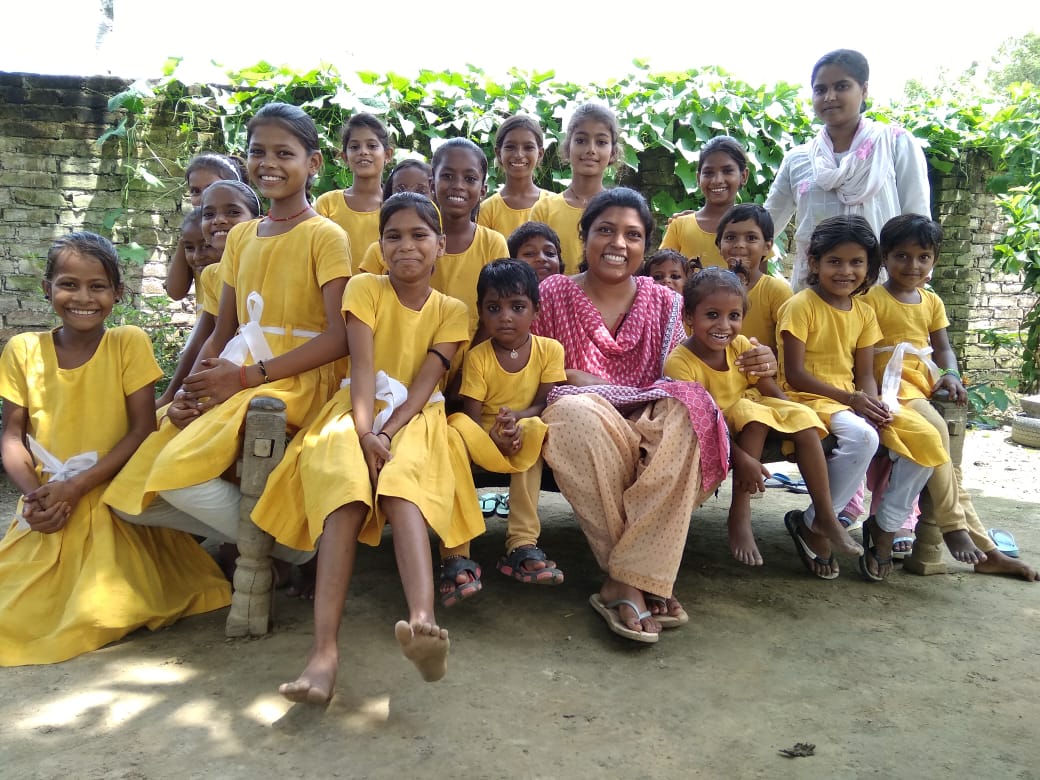
“In northern parts of the country, parents often choose to educate their sons, while the daughters are expected to help out with household chores or farm work. We understood that most girls in the region had grown up in such an atmosphere. Teaching them farming in a refined and more intensive manner would not only equip them for life but also provide valuable information to their farmer parents. Overall, we wanted these girls to study in an environment where they felt safe, looked up to one another and enjoyed their childhood,” adds Ashita.
The next year went in the process of convincing the residents of the village, and they were supported in their endeavour by the village head.
The Good Harvest School formally began in September 2016 across the very farm where Anish had toiled for years, with ten students and two teachers—Ashita and Anish.
About two and half years later, close to 45 girls between the ages of 2 ½ to 13 years now consider the school as their second home.
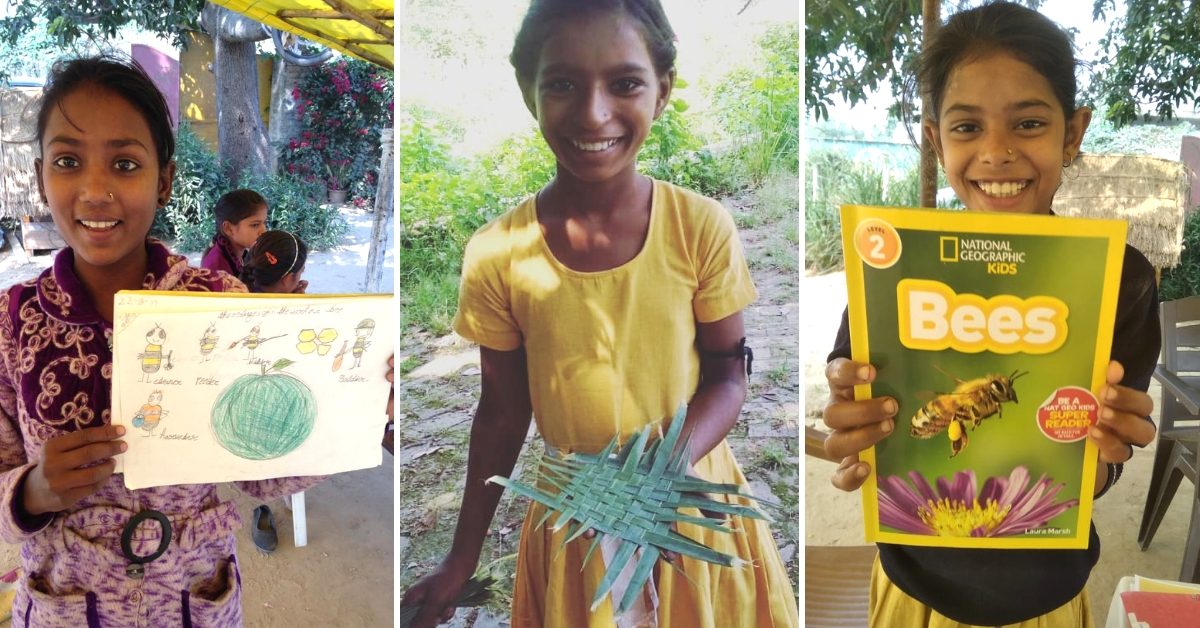
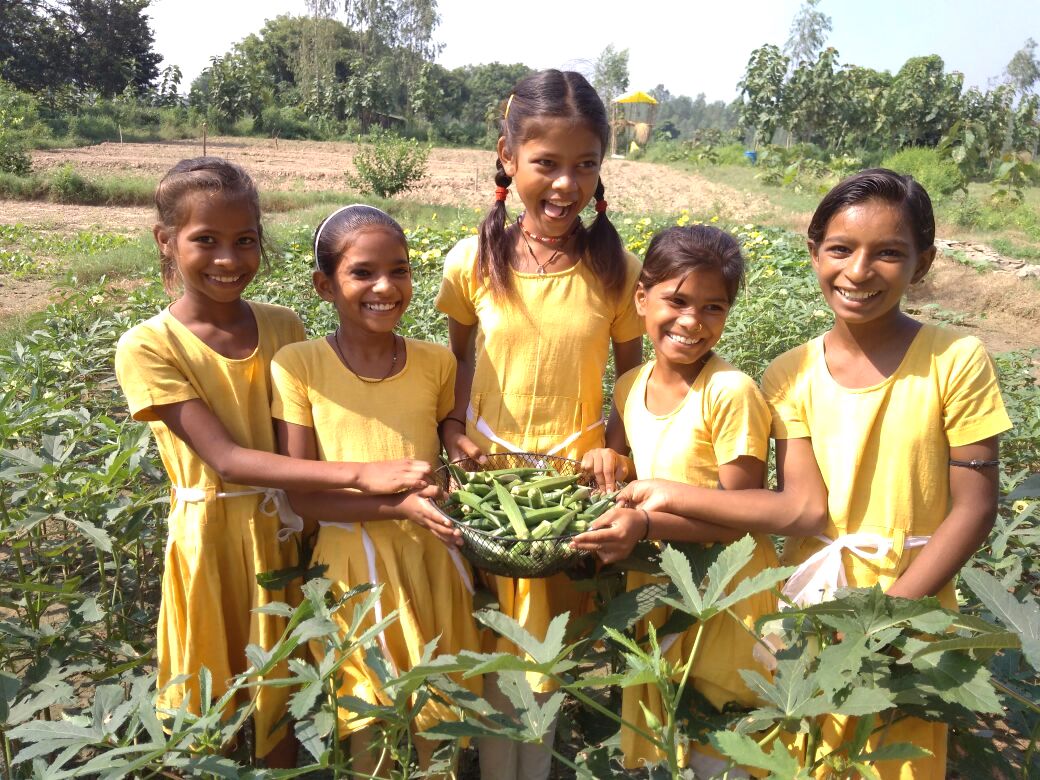
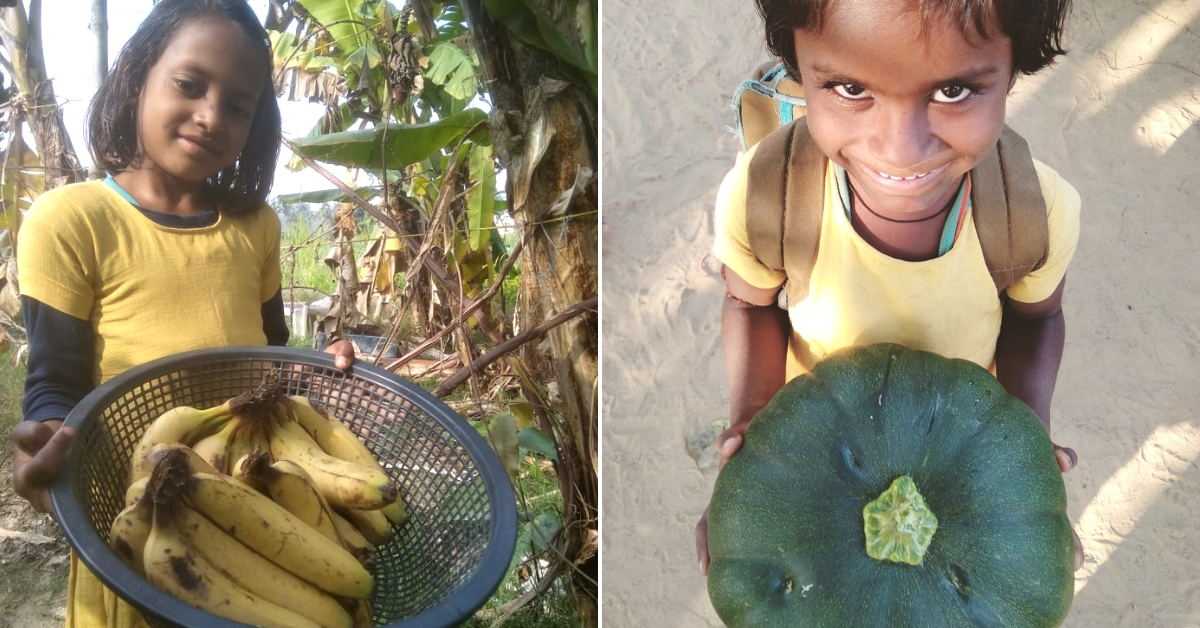
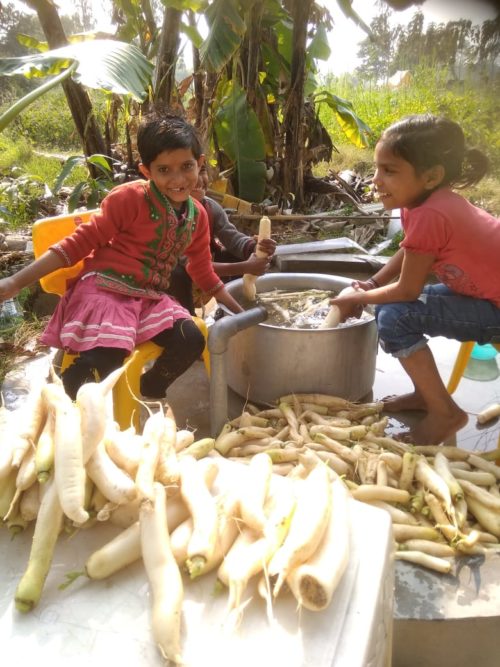
“We don’t have a class-like structure here as these children haven’t had any exposure to any sort of schooling at all. Everybody sits together, and we do weekly analysis about how each one is receptive to what we teach—be it English, Hindi, math or even agriculture for that matter and then regroup them. Goonj (an NGO) has provided us with books, but we don’t have a fixed curriculum. Currently, we have employed a person who teaches Hindi, while I take care of English and Math and Anish has been their teacher for agriculture. We also have been providing computer education to the older girls,” Ashita mentions.
She also proudly shares that her kids have grown not only local vegetables but also seasonal ones like broccoli, kohlrabi and even purple cabbage.
“It gives us immense pleasure to see the happiness in their eyes when they harvest the fruits of their labour. Last year, we took them all to Lucknow for a workshop on mushroom farming, and a few months later, they grew these in the school!” she shares.
Volunteers from across the world drop by and Ashita shares that they lend a helping hand in everything—whether it is teaching or physical support in the farm.

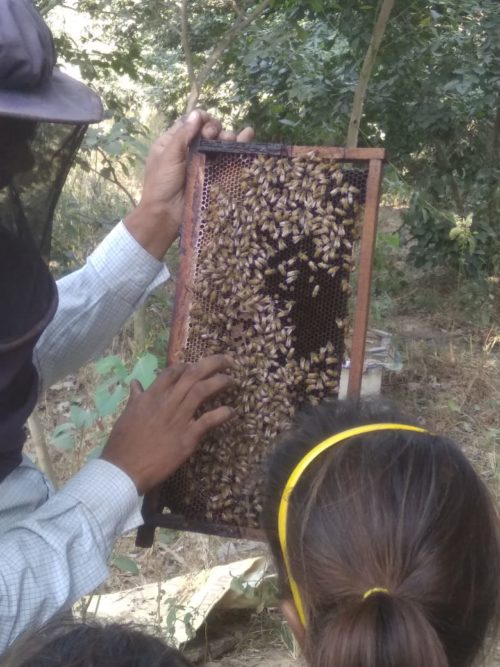
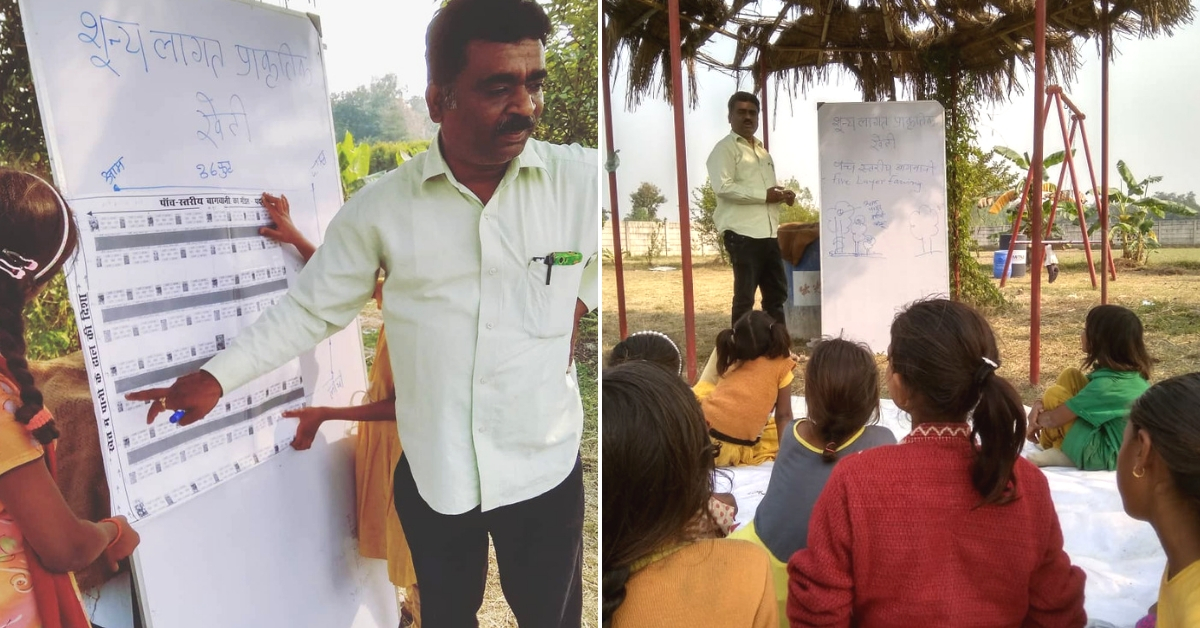
“We now have a volunteer who has been teaching the kids Geography for the first time. You should see the fascination the kids had when they got to know that there was a world beyond this village. We also have been constructing mud houses on the farm with the help of volunteers, and it has been an enriching experience. We hope that these lessons make them an empowered and independent bunch of women, who will able to take care of themselves and their families in future,” she adds.
As for the parents of these girls, Ashita and Anish share that while they took time to warm up and the initial days were difficult, things have changed, and today, they trust the couple completely.
“The parents know that their girls are safe here, and sometimes even leave their toddlers behind when they head to work. More than parents, it is the kids who have undying trust and faith in us. Earlier, we faced issues with the caste system, but even that fizzled out. Today, all the girls sit together and share their lunch boxes. One of the older ones chose to confide in me when her menstrual cycle commenced, instead of her parents. I felt like a mother. This has been a heartening takeaway for us too,” shares an emotional Ashita.
The school operates five days a week, and the couple has made it their life’s mission to guide these girls through a value-added path of education and life skills.
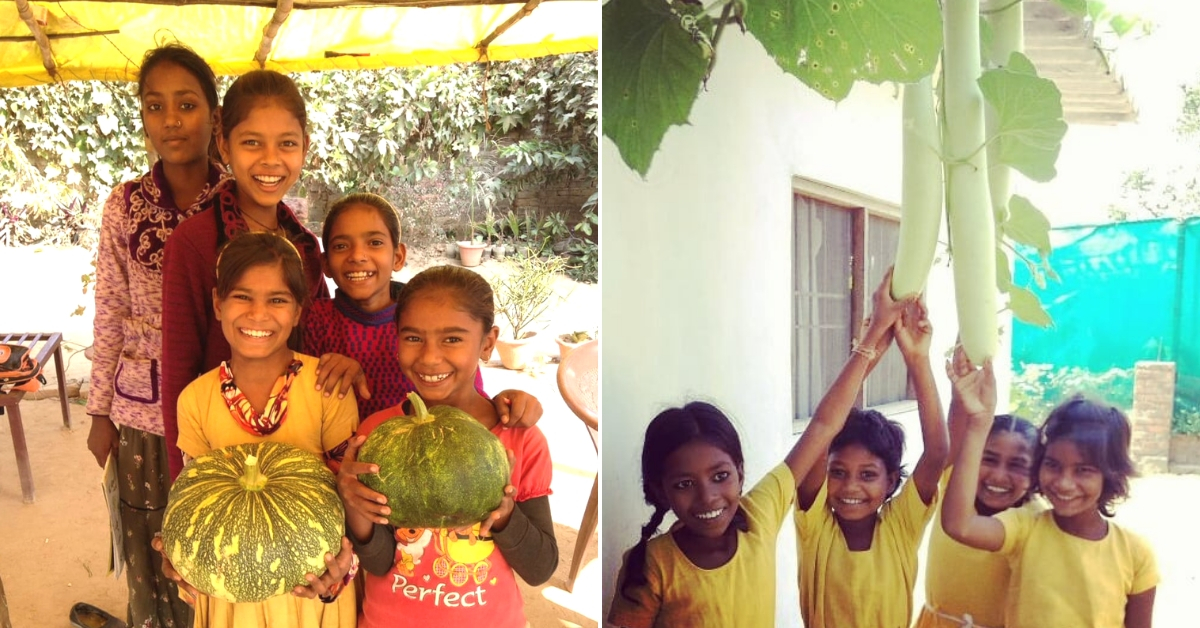
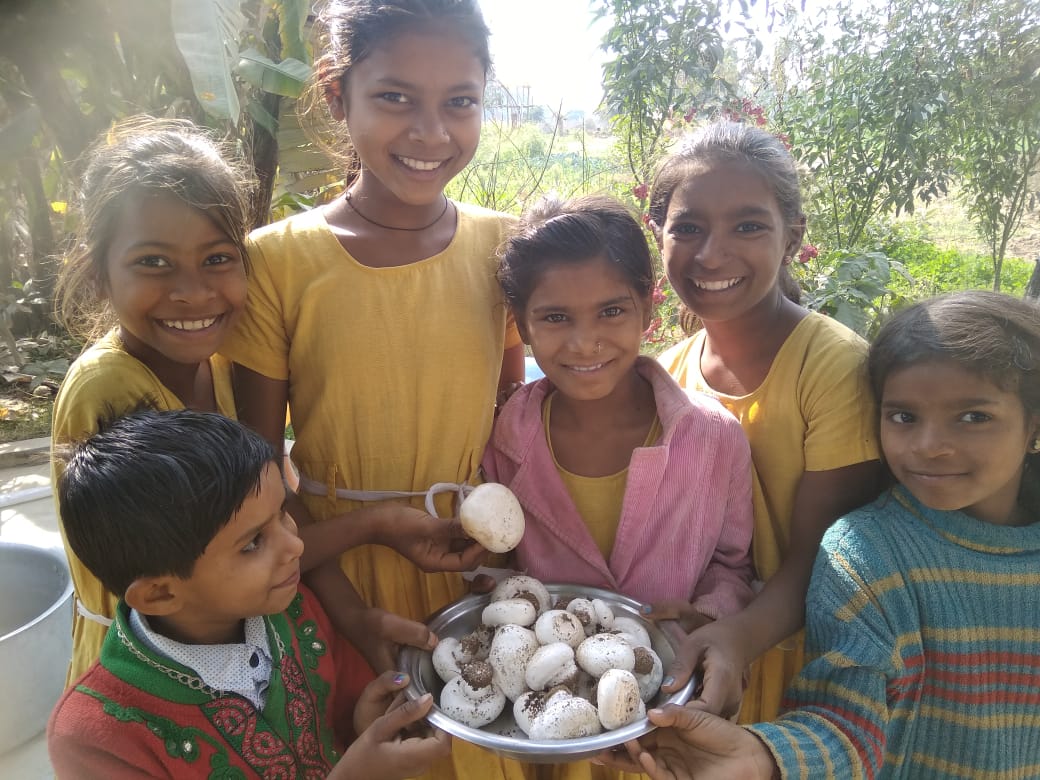
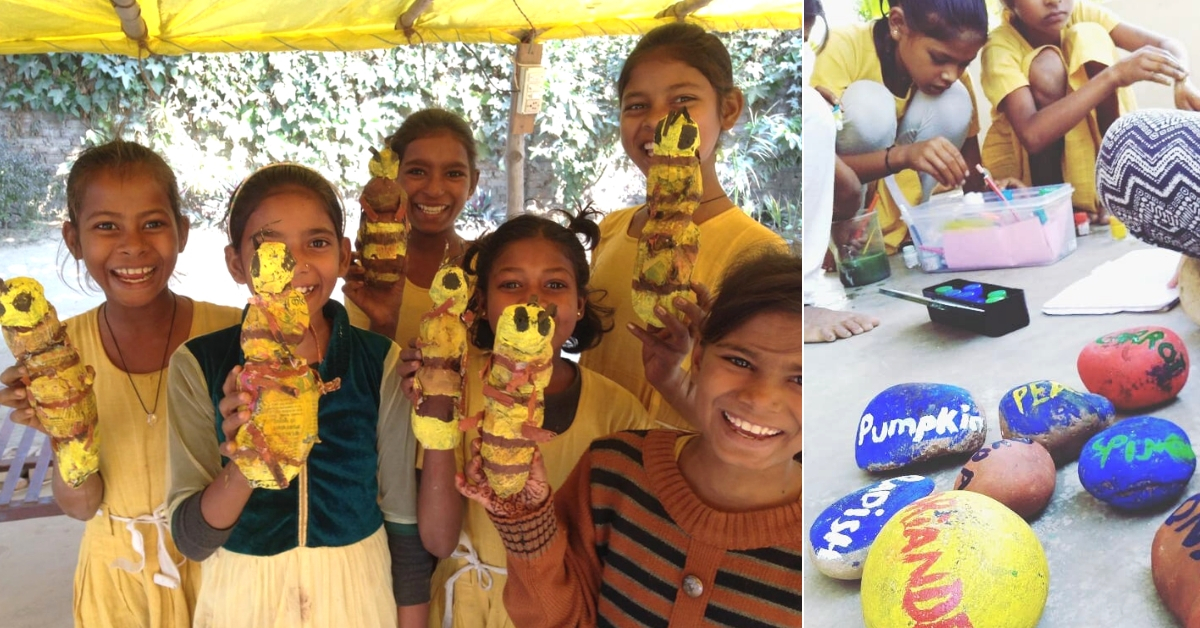
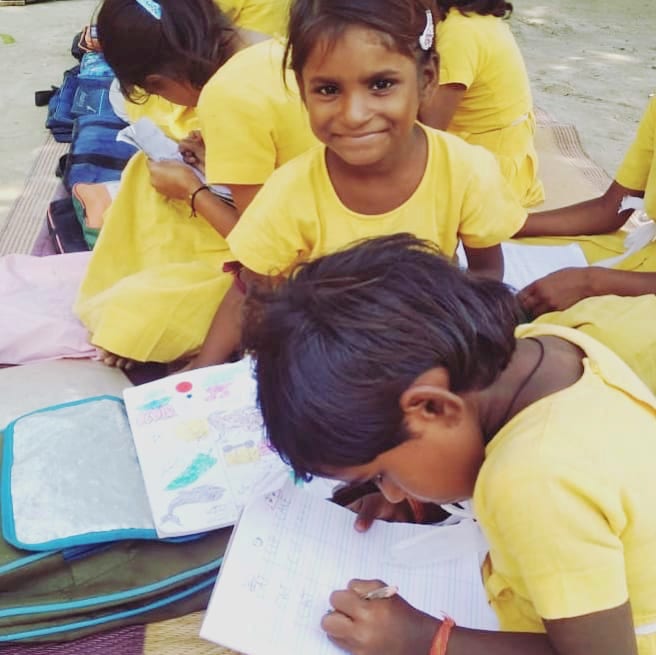
In the future, they hope to have a more focused approach. To begin with; they want to put in place a primary school structure up to class 5. “That is why we brought a Hindi teacher on board. We have been in talks with nearby schools that would enroll them after they are good to graduate from here. It is a long process, but we are hopeful,” she concludes.
You may also like: How a Couple Is Empowering Girls in Rural Bihar to Change the Face of Education in Govt Schools
Ashita and Anish stay at the farm and have been managing the expenses of running the school by themselves. If you wish to reach out to them in terms of volunteering or monetary support, you can visit their website or Facebook page.
(Edited by Gayatri Mishra)
Like this story? Or have something to share?
Write to us: [email protected]
Connect with us on Facebook and Twitter.
If you found our stories insightful, informative, or even just enjoyable, we invite you to consider making a voluntary payment to support the work we do at The Better India. Your contribution helps us continue producing quality content that educates, inspires, and drives positive change.
Choose one of the payment options below for your contribution-
By paying for the stories you value, you directly contribute to sustaining our efforts focused on making a difference in the world. Together, let’s ensure that impactful stories continue to be told and shared, enriching lives and communities alike.
Thank you for your support. Here are some frequently asked questions you might find helpful to know why you are contributing?


This story made me
-
97
-
121
-
89
-
167











